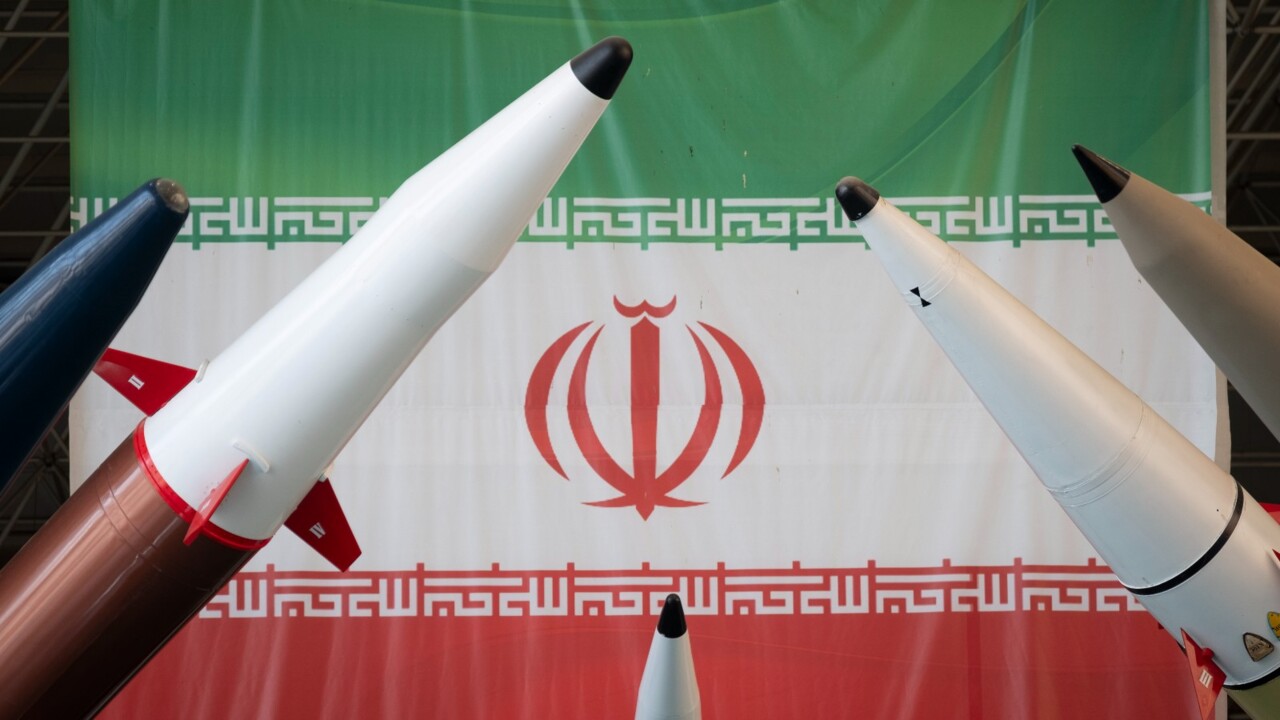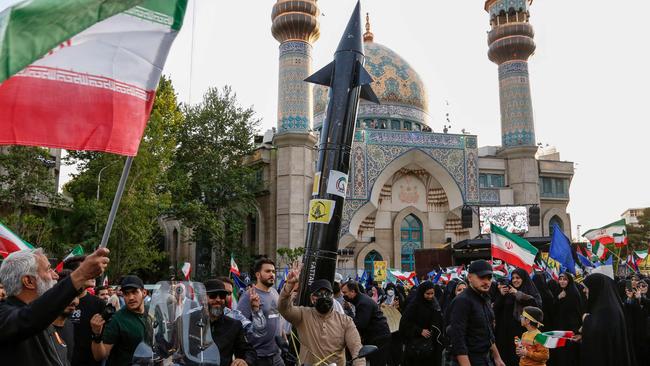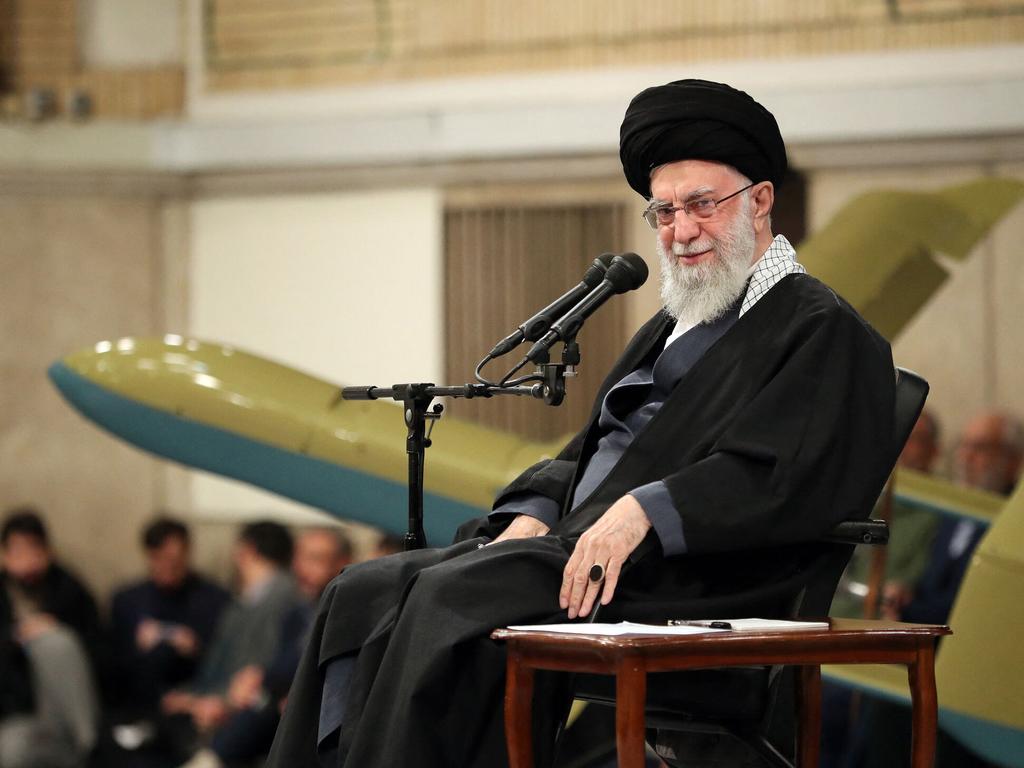Iran v Israel: what’s happening?
Israel is mulling a retaliatory strike after Iran’s drone and missile attack on the weekend. The Australian’s Foreign Editor Greg Sheridan explains the background to this latest escalation and where it’s likely to go next.

The conflict in the Middle East escalated significantly on Sunday, when Iran launched more than 180 drones and dozens of ballistic missiles at Israel.
Officials from the Israeli Defence Force said most of the weapons were intercepted by the nation’s infamous Iron Dome, but confirmed one military base was “slightly damaged” in the onslaught. It’s also understood at least one child has been injured.
It’s believed the attack was a response to a strike by Israel that killed Iranian military leaders on April 1.
The Australian’s Foreign Editor Greg Sheridan explains the background to this latest escalation and where it’s likely to go next.
Why did Iran attack Israel?
It’s very hard to answer that properly, authoritative sources out of the Iran and its leadership are pretty limited.
The Iranians have been willing to fight right up to the last Arab against Israel. They like to use their proxies — the Hezbollah group in Lebanon and Hamas in Gaza. They have clients in the Palestinian extremist groups, Shia militias in Syria and Iraq, and of course, the Houthis in Yemen. And they don’t mind if those groups suffer retaliation from the Israelis because of their attacks on Israel.
One reason this drone attack is a historic turning point is that Iran has not taken conventional military action itself against Israel.

Maybe they did it because Israel killed a couple of their generals in Syria (on April 1) Maybe they did it to demonstrate to the Hamas and Hezbollah allies that they were going to put some skin in the game as well. This could be a prelude to a major Hezbollah attack on northern Israel. Maybe they did it to show a degree of contempt for Israel and for the United States. They’ve said that their action is over for now, and they would hope that that means the United States and Israel limit their retaliation.
But if they do retaliate, that might give the Iranian regime the excuse it wants to convert their nuclear energy program into a nuclear weapons program. They might have been motivated by genuine theological hatred of Israel. We can’t underestimate that, as a factor in these matters. Nobody in the world except the Iranians knows exactly why the Iranians did what they did.
Has Iran not launched an attack as potentially catastrophic as it could have?
Iran may be doing what its forces have done in the Middle East for quite a while now, which is something utterly outrageous, unforgivable, unjustifiable and wrong, then say, ‘Look, we didn’t kill many people, therefore you shouldn’t retaliate.’ That’s a game that terrorists play with the West a lot.
But we’re just at the beginning of something here.
Reports about imminent Iranian attacks came mainly from American intelligence, and when the Americans release intelligence publicly, it’s turning out to be extremely accurate.
The Americans release that intelligence in order to make sure everyone’s prepared, but also to try to dissuade their enemies from taking the action.
It is certainly the case that if the Iranians had put up a bigger barrage and at the same time triggered missile firings from Lebanon, there was the danger that Israel’s Iron Dome defence system could be overwhelmed.
Hezbollah has many, many more than 100,000 missiles and the Iranians certainly have many more than that.

If everything is fired all at once against Israel, no air defence system could cope and then there would be widespread Israeli casualties.
If you have that, then you’re going to get massive Israeli retaliation and it’s very likely you get American retaliation too.
Biden said to Iran, ‘Don’t attack Israel. Do not do it.’ And Antony Blinken, the US secretary of state, has often said that superpowers don’t bluff.
I think Israel will have to respond. I think America may very well have to respond. But then the arguments about what kind of response you get are interesting. Do you just want a symbolic response to show, you can’t hit us with impunity?
Part of this problem arises from the fact that Biden has had a very poor policy towards Iran, and he’s had a policy of trying to woo Iran into cooperation, the same as Barack Obama had.
How will Israel respond to the attack?
Israel’s war cabinet has reportedly decided on a “forceful” retaliatory strike on Iran, but in a way that will not spark a wider regional war.
As the US and European allies urged Jerusalem against a response that would lead to wider conflict, the five member cabinet agreed to respond “clearly and decisively,” to send a message that Jerusalem “will not allow an attack of that magnitude against it to pass without a reaction, according to the country’s Channel 12 TV.
It came as General Herzi Halevi, chief of staff of the Israel Defence Forces, confirmed Israel would respond to the attack, saying: “The launch of so many missiles and drones to Israeli territory will be answered with a retaliation.”
Israeli Prime Minister Benjamin Netanyahu reportedly asked the Israel Defence Forces to provide target options which would send a message to Tehran but would not cause casualties.
Those options include a potential strike on a facility in Tehran or a cyberattack, an official told The Washington Post.







To join the conversation, please log in. Don't have an account? Register
Join the conversation, you are commenting as Logout